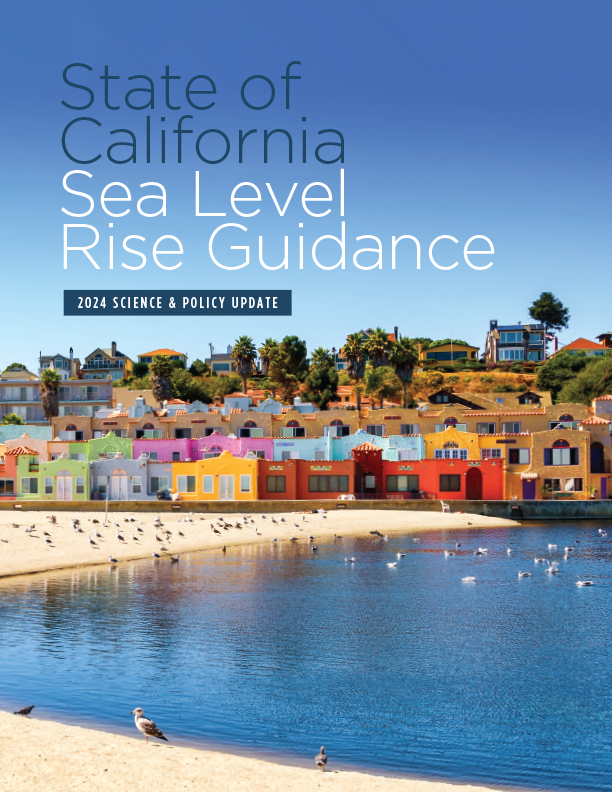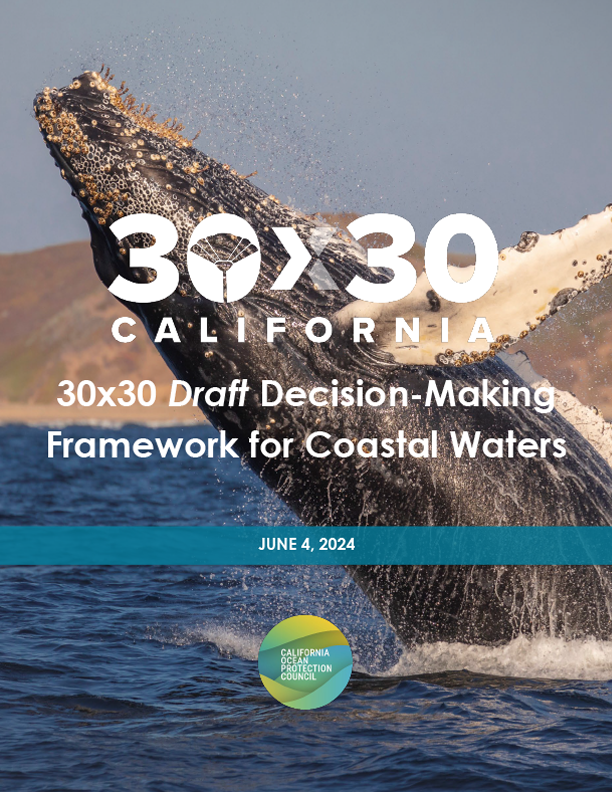Safeguarding California’s Coast and Ocean: 2024 Year in Review
In 2024, the California Ocean Protection Council (OPC) celebrated its 20th anniversary and continued its mission to ensure a healthy, resilient, and productive coast and ocean for the benefit of current and future generations. Guided by the Strategic Plan to Protect California’s Coast and Ocean: 2020-2025, OPC made significant strides across its four strategic goals: Climate Change, Equity, Biodiversity, and Sustainable Blue Economy.

Strategic Goal 1: Safeguard Coastal and Marine Ecosystems and Communities in the Face of Climate Change

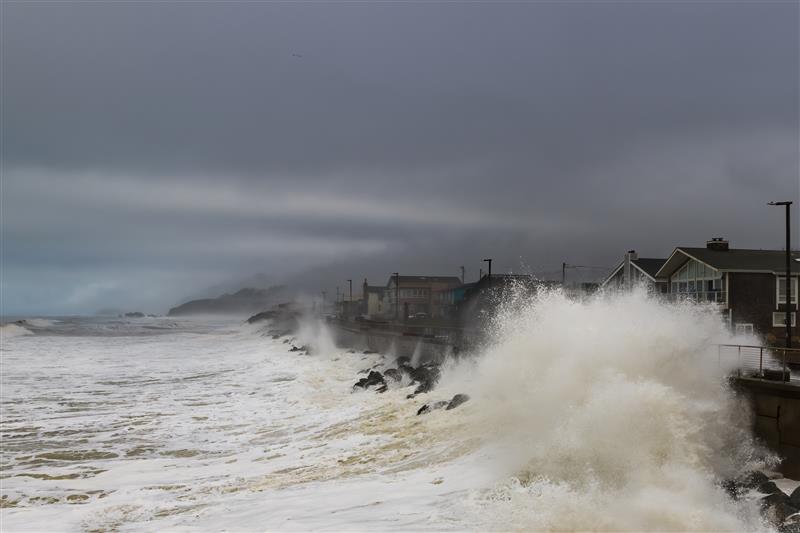
Informing Statewide Sea Level Rise Policy and Advancing Adaptation
- The State of California Sea Level Rise Guidance: 2024 Science and Policy Update, adopted by OPC in June 2024, marks the fourth iteration of statewide guidance for state and local decision-makers to incorporate best available science into planning, design, permitting, investments, and other decisions. Developed in partnership with the Ocean Science Trust and an interdisciplinary Sea Level Rise Task Force, this Guidance replaces the 2018 Update of the State of California Sea Level Rise Guidance and features the best available science with updated sea level rise projections through 2150 to guide state, tribal, and local decisions, planning, and investments. Learn more.
- In December, the San Francisco Bay Conservation and Development Commission (BCDC) adopted the Regional Shoreline Adaptation Plan (RSAP), a region-wide plan for the San Francisco Bay shoreline, which integrates the best available science and guidance provided in the Sea Level Rise Guidance: 2024 Science and Policy Update and supported by OPC. Learn more
- Throughout 2024, OPC’s Senate Bill 1 Sea Level Rise Adaptation Planning Grant Program funded 15 projects across California, providing a total of over $14.5 million to support sea level rise adaptation planning. These projects enable local, regional, and tribal governments—from Del Norte and Humboldt Counties to Los Angeles County—to strengthen coastal resilience and prepare for a changing coastline.
Mitigating Climate Change Through Nature-Based Solutions
- On Earth Day of 2024, California Natural Resource Agency (CNRA) released California’s Nature-Based Solutions Climate Targets with 81 targets to help absorb carbon emissions through millions of acres across multiple habitats statewide, the first for the state and among the most comprehensive in the world.
- In July, OPC, in collaboration with the California Air Resources Board (CARB), released the Blue Carbon Ecosystem Data and Model Assessment Report, outlining definitions and frameworks focusing on the inclusion of blue carbon ecosystems in climate strategies.
Improving Understanding of Ocean Acidification and Hypoxia Vulnerability
- OPC expanded existing modeling efforts to better understand land-based drivers and impacts of ocean acidification and hypoxia on the San Francisco and Monterey coast, with an aim to guide state management actions to reduce impacts to marine wildlife. Learn more.

Strategic Goal 2: Advance Equity Across Ocean and Coastal Policies and Actions


Enhancing Coastal Stewardship by California Native American Tribes
- OPC announced $1 million total in awards through California’s Tribal Nature-Based Solutions (TNBS) Program in June to Kai Poma, a tribal non-profit representing 3 tribes, and to the yak titʸu titʸu yak tiłhini (ytt) Northern Chumash Nonprofit representing the ytt Northern Chumash Tribe in support of tribal stewardship projects on California’s coast to preserve critical habitat and cultural resources, enhance climate resilience and coastal biodiversity, and promote use of Traditional Ecological Knowledge through tribally-led stewardship. Learn more.
Enhancing Engagement with Underserved Communities
- The pilot Environmental Justice Small Grants Program launched in March, in partnership with Justice Outside, resulting in 24 local projects awarded statewide. This initiative aims to create more inclusive and accessible funding pathways to support community engagement in ocean and coastal projects, policies, and research. Learn more.
- OPC, with support from Better World Group, launched the Environmental Justice (EJ) Advisory Board for California’s Coast and Ocean. The EJ Advisory Board convenes quarterly, offering recommendations to ensure equity is central to California’s coast and ocean decision-making processes. Learn more.
Click on image to expand.
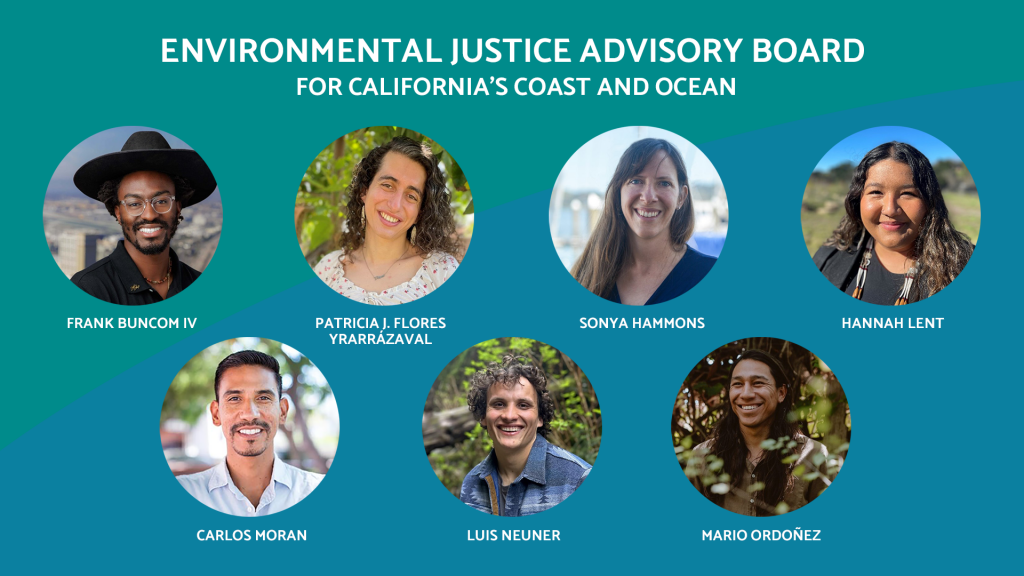

Strategic Goal 3: Enhance Coastal and Marine Biodiversity

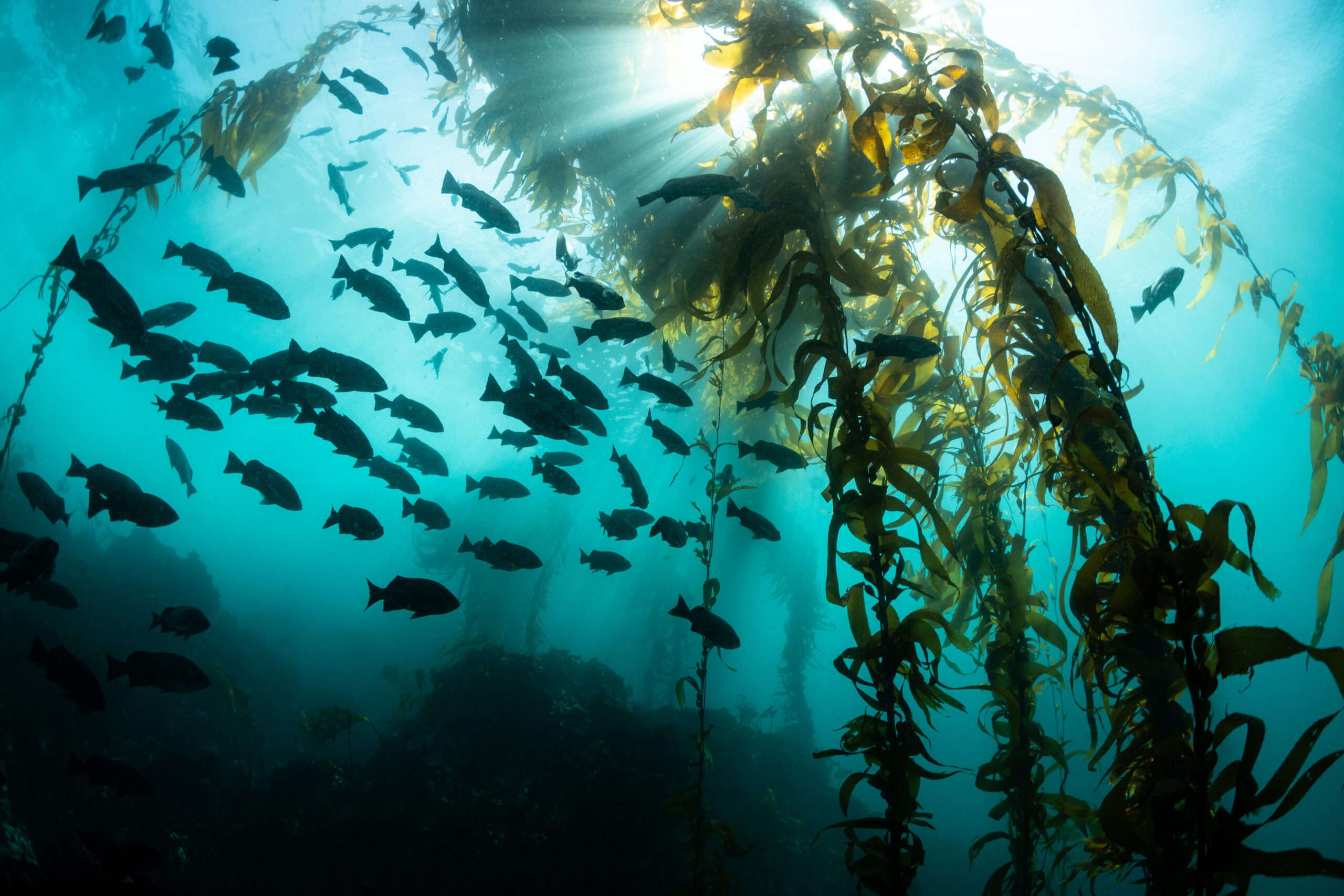
Highlighting California’s International Leadership to Conserve Biodiversity and Protect Marine Ecosystems
- OPC attended the 16th meeting of the United Nations Biodiversity Conference (COP 16) held in Cali, Colombia. The Conference focused on implementing the Kunming-Montreal Global Biodiversity Framework, aiming to halt and reverse biodiversity loss by 2030. Key discussions were held to highlight California’s progress toward conserving 30% of state lands and coastal waters by 2030, and to showcase that protecting nature and fighting climate change are key to preparing for the future. Learn more.
- OPC participated in the fourth United Nations Intergovernmental Negotiating Committee (INC-4) session in Ottawa, Canada, advancing efforts to develop a global treaty to end plastic pollution. OPC highlighted California’s leadership through the Statewide Microplastics Strategy and emphasized source reduction as a key solution, sharing insights on microplastics research and policy implementation with other local and regional governments around the globe. Learn more.
Conserving 30% of California’s Coastal Waters by 2030
- The Draft Decision-Making Framework for Coastal Waters, released by OPC in June, advances the state’s commitment to conserve 30% of California’s coastal waters by 2030. This draft framework translates policy objectives—protecting biodiversity, expanding access to nature, and building climate resilience—into objective, transparent, science-based criteria. The final 30×30 Decision-Making Framework for Coastal Waters is anticipated to be presented for Council consideration and approval in March 2025. Learn more.
Designation of the Chumash Heritage National Marine Sanctuary
- This past year, California saw the new designation of the Chumash Heritage National Marine Sanctuary, the first tribally nominated Sanctuary and the third largest in the nation. Effective November 30, 2024, the sanctuary encompasses 4,543 square miles off the Central California Coast and will protect areas of cultural significance to California Native American tribes, prioritize tribal stewardship, and safeguard marine life and habitats.
Click on image to expand.
Source: NOAA
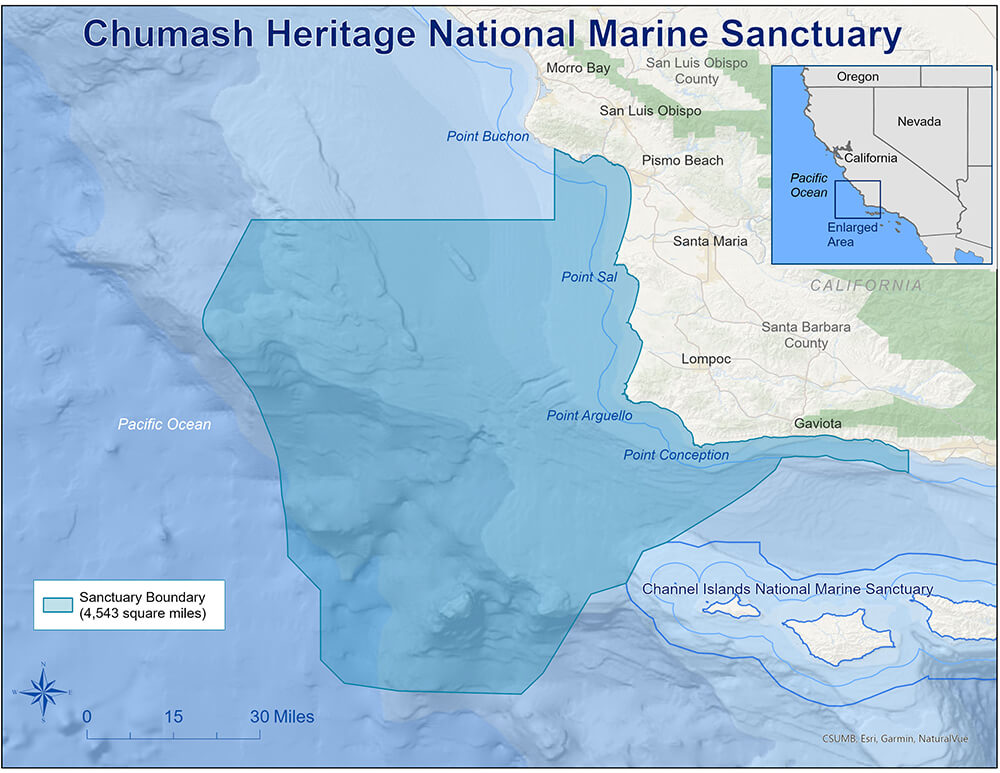
Strengthening Management of California’s Marine Protected Area Network
- OPC, in partnership with the California Department of Fish and Wildlife and California Sea Grant, launched a 2025 California Mid-Depth Rocky Reef MPA Monitoring Request for Proposals (RFP) to inform management of California’s marine protected area (MPA) network through improved monitoring of mid-depth rocky reef habitats. Selected projects are anticipated to be presented for Council consideration and approval in March 2025. Learn more.
- To advance management of the MPA network and support ongoing evaluation of publicly-submitted MPA change petitions, OPC approved the development of public-facing mapping tools and an update to the MPA connectivity model in September. The mapping tools will begin to roll out in March 2026 and the initial outputs of the new connectivity model will be available in the summer. Learn more.
Improving Management of Marine Habitats and Protecting Marine Life from Entanglement
- OPC approved two projects to inform adaptive management and resilience of kelp forests by assessing the impact of commercial and recreational harvest on giant and bull kelp in California, and by strategically mapping giant and bull kelp genomic diversity in California to inform climate-resilient restoration of kelp.
- In partnership with the California Department of Fish and Wildlife and California Sea Grant, OPC approved the development of a California Artificial Reef Program Plan. This plan will provide a statewide, science-based approach to inform the management of artificial reefs, including best practices for siting, design, monitoring, and evaluating potential benefits and risks of these structures. Learn more.
- To address environmental degradation and species loss in intertidal habitats, the California Legislature appropriated $9.5 million in 2023 to OPC to support the creation of the Intertidal Biodiversity DNA Barcode Library. In February, OPC approved funding for Coastal Quest to develop the Library to provide new insights into species ranges along the coast and allow managers to better protect and conserve California’s coastal and marine biodiversity.
- Reports of whale and marine life entanglement in fishing gear off the California coast have increased in recent years. OPC approved four projects identified in close partnership with the California Department of Fish and Wildlife and administered by the Pacific States Marine Fisheries Commission to reduce the risk of whale and sea turtle entanglement in fishing gear, inform management efforts, and directly benefit fishing communities.

Strategic Goal 4: Support Ocean Health through a Sustainable Blue Economy

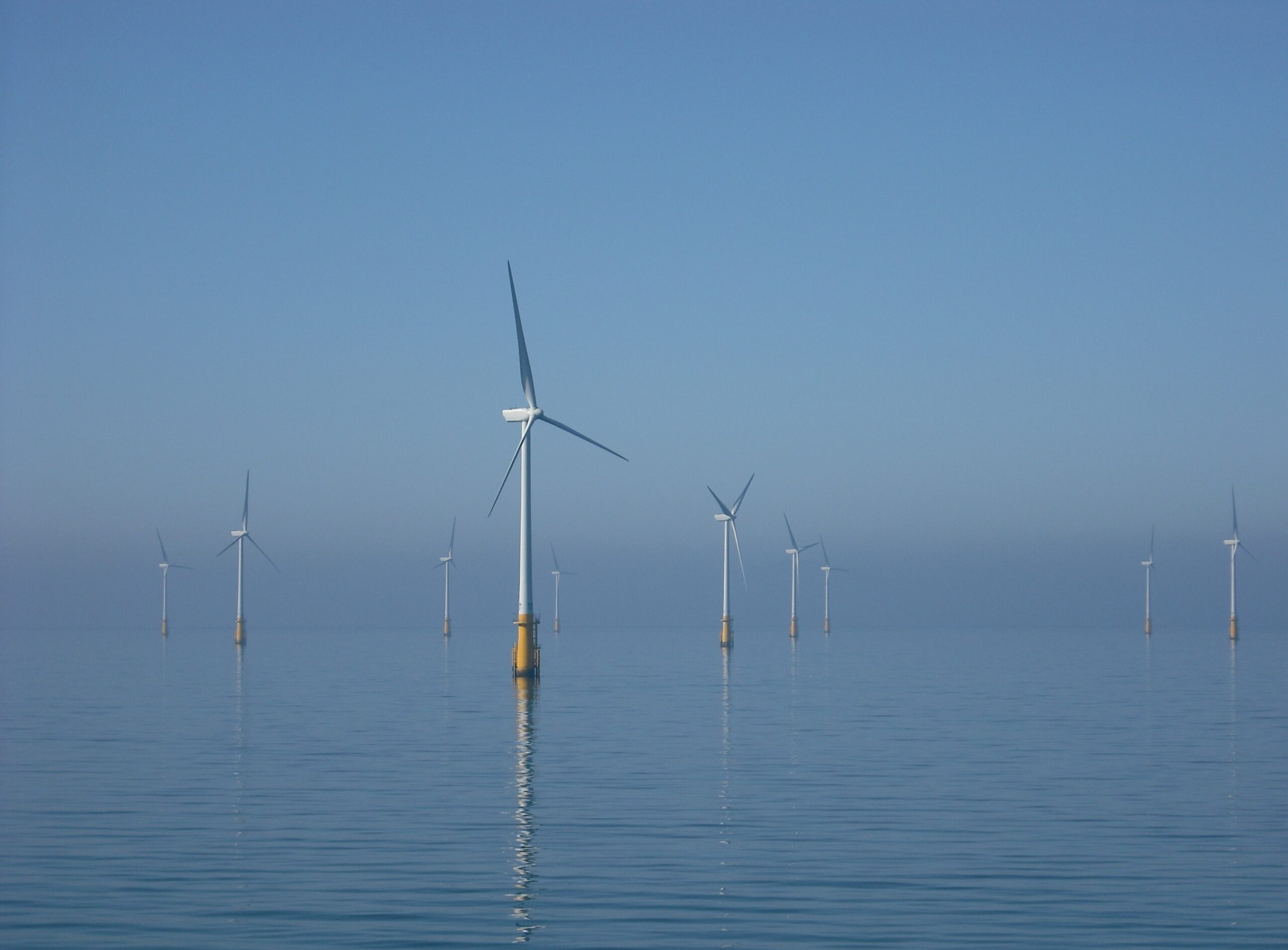
Informing Offshore Wind Development
- OPC and CNRA played a key role in the development of California’s AB 525 Strategic Plan for Offshore Wind, elevating the need for environmental research and monitoring to protect ecosystems, and the importance of engagement with California Native American tribes, fishermen, and underserved communities.
- OPC has continued to advance development of an offshore wind environmental monitoring guidance, in partnership with the California Marine Sanctuary Foundation, with a call for tribal scientists to support the development environmental monitoring guidance for offshore wind projects. This initiative includes experts in areas such as marine mammals, fish ecology, seabirds, habitats, data integration, and climate change to inform comprehensive monitoring strategies. Learn more.
- In June, OPC approved funding to support fishermen engagement and advance spatial modeling to inform offshore wind development. This included support for the California Fishermen’s Resiliency Association to enhance industry-to-industry cooperation on offshore wind fishing community benefit agreements, and ensure that the perspectives and needs of the fishing community are considered in offshore wind development. Funding was also provided to Merkel and Associates to conduct high-resolution surveys and develop a model for eelgrass habitat in Humboldt Bay, providing important data to support protection of vulnerable eelgrass habitat and inform offshore wind port development. Learn more.

OPC Summer Internship Program
In 2024, OPC hosted five undergraduate students, one of which joined OPC through Stanford University’s Environmental Policy Internships in California (EPIC) Fellowship, and four were selected through a highly competitive process for the fourth year of OPC’s ten-week paid summer internship program. These interns made valuable contributions to key OPC initiatives while gaining professional experience in coastal and ocean policy and management.
- Anushka Vijay, Earth Systems, Environmental Policy Internships in California (EPIC) Fellowship, Stanford University
- Mina Adabag, Molecular Environmental Biology / Ecology, University of California, Berkeley
- Lawrence Chen, Marine and Coastal Sciences, University of California, Davis (Pictured left)
- Leah Hawkins, Marine Sciences, California Polytechnic State University, San Luis Obispo (Pictured right)
- Arianna Lawrence, Public Policy Analysis / Environmental Analysis, Pomona College, Claremont


Looking Ahead
As OPC approaches the culmination of its 2020-2025 Strategic Plan, efforts are underway to develop the 2026-2030 Strategic Plan. Public input is being sought to ensure OPC’s initiatives continue to reflect the needs and values of California’s diverse communities, with the final Strategic Plan anticipated to be brought to the Council for adoption in December 2024. Next year will also see the release of the highly anticipated 2025 California Ocean and Coast Report Card, in collaboration with the Ocean Science Trust, which will use scientific indicators to evaluate the health of California’s ocean and coastal ecosystems.
Throughout 2024, OPC demonstrated a steadfast commitment to protecting and enhancing the state’s ocean and coastal ecosystems. Through strategic investments, collaborative partnerships, and a focus on equity and environmental justice, OPC continues to lead efforts that ensure the resilience and health of California’s coast and ocean for generations to come.
To stay updated with OPC’s efforts, follow us on social media, and sign up for emails.


